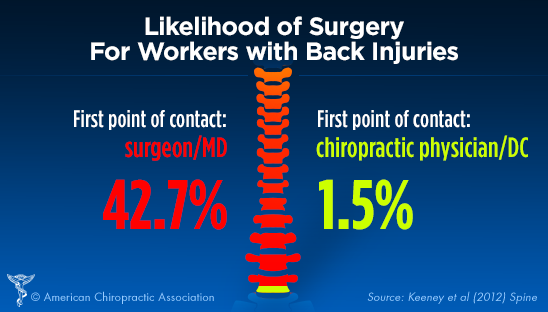Look After Your Back By Uncovering The Effect Of Your Diet Regimen On Discomfort Monitoring-- Figure Out Which Foods Can Provide Alleviation And Which Ones To Avoid
Look After Your Back By Uncovering The Effect Of Your Diet Regimen On Discomfort Monitoring-- Figure Out Which Foods Can Provide Alleviation And Which Ones To Avoid
Blog Article
Developed By-Hsu Sharpe
When it comes to handling your neck and back pain, the food choices you make can dramatically influence just how you feel every day. Visualize having the ability to ease your pain simply by adjusting what you eat. By understanding the role of nutrition in back pain monitoring and knowing which foods to integrate or steer clear of, you can take positive steps towards a much healthier and much more comfortable way of life. The connection in between nutrition and back health and wellness is more profound than you might understand-- allow's explore exactly how particular foods can either calm or aggravate your neck and back pain.
Relevance of Nutrition in Pain In The Back
Nourishment plays a vital duty in taking care of back pain. Your diet can considerably influence swelling levels and overall pain degrees in your back. Eating a well balanced diet abundant in nutrients like vitamins D and K, calcium, magnesium, and omega-3 fatty acids can help in reducing inflammation and strengthen bones, which are important for back health.
In addition, preserving a healthy and balanced weight via correct nourishment can ease stress on your spine, minimizing the risk of neck and back pain.
Moreover, specific nutrients like antioxidants located in vegetables and fruits can help battle oxidative anxiety and advertise recovery in the body, consisting of the back muscle mass and back.
On the other hand, eating too much amounts of refined foods, sugary beverages, and unhealthy fats can contribute to inflammation and weight gain, exacerbating neck and back pain.
Foods to Eat for Back Health And Wellness
To sustain a healthy back, incorporating nutrient-rich foods right into your daily meals is essential. Including foods high in antioxidants like berries, spinach, and kale can help in reducing swelling in your back, alleviating pain and discomfort. Omega-3 fatty acids found in fatty fish such as salmon and mackerel have anti-inflammatory residential or commercial properties that can profit your back health and wellness.
In addition, consuming nuts and seeds like almonds, walnuts, and chia seeds offers crucial nutrients like magnesium and vitamin E, which support muscle mass function and reduce oxidative anxiety. Integrating lean proteins such as poultry, turkey, and tofu can aid in muscle mass repair and upkeep, promoting a solid back.
Don't fail to remember to include dairy products or fortified plant-based alternatives for calcium to sustain bone health and wellness. Last but not least, moisten with lots of water to maintain your spine discs moisturized and operating efficiently. By including these nutrient-dense foods in your diet plan, you can nourish your back and support general back health.
Foods to Prevent for Pain In The Back
Select staying clear of processed foods high in added sugars and trans fats when looking for relief from pain in the back. These types of foods can contribute to swelling in the body, which might exacerbate neck and back pain. Say no to https://www.boonvilledailynews.com/story/news/2021/07/06/holtwick-chiropractic-transitions-boonville-chiropractic/7834208002/ like candy, pastries, and sugary beverages, in addition to fast food products like burgers, french fries, and fried hen that are typically packed with trans fats.
Additionally, avoid foods consisting of high levels of refined carbohydrates, such as white bread, pasta, and breads, as they can increase blood glucose degrees and potentially get worse swelling in the body.
It's also important to restrict your intake of foods high in saturated fats, like red meat and full-fat dairy items, as they can contribute to inflammation. Processed foods like deli meats, chips, and packaged treats are commonly high in hydrogenated fats and need to be eaten in small amounts.
dr tui , taking notice of your diet regimen and making smart food selections can have a significant effect on managing pain in the back. By including nutrient-rich foods like berries, fatty fish, nuts, and lean proteins, and staying clear of refined and sugary things, you can help in reducing swelling and assistance overall back wellness. Keep in mind, what you eat plays a critical function in exactly how you really feel, so make certain to prioritize your nourishment for a healthier back.
